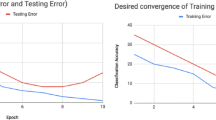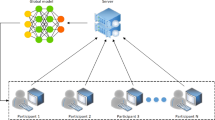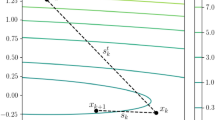Abstract
Federated learning is emerged as an attractive paradigm regarding the data privacy problem, clients train the deep neural network on their local datasets, there is no need to upload their local data to a center server, and gradients are shared instead. However, recent studies show that adversaries can reconstruct the training images at high resolution from the gradients, such a break of data privacy is possible even in trained deep networks. To protect data privacy, a secure aggregation scheme against inverting attack is proposed for federated learning. The gradients are encrypted before sharing, and an adversary is unable to launch various attacks based on gradients. To improve the efficiency of data aggregation schemes, a new way of building shared keys is proposed, and a client build shared keys with 2a other clients, but not all the clients in the system. Besides, the gradient inversion attacks are also tested, and a gradient inversion attack is proposed, which enable the adversary to reconstruct the training data based on gradient. The simulation results show the proposed scheme can protect an honest but curious parameter server from reconstructing the training data.








Similar content being viewed by others
Data availability
The datasets generated during and/or analyzed during the current study are available from the corresponding author on reasonable request.
References
Chen, J., Pan, X., Monga, R., Bengio, S., Jozefowicz, R.: Revisiting distributed synchronous SGD, arXiv:1604.00981 [cs], (Mar. 2017). [Online]
McMahan, B., Moore, E., Ramage, D., Hampson, S., y Arcas, B. A.: “Communication-Efficient Learning of Deep Networks from Decentralized Data,” in Proceedings of the 20th International Conference on Artificial Intelligence and Statistics.PMLR, (Apr. 2017), pp. 1273–1282
Li, T., Sahu, A.K., Zaheer, M., Sanjabi, M., Talwalkar, A., Smith, V.: Federated optimization in heterogeneous networks. Proceed. Mach. Learn. Sys. 2, 429–450 (2020)
Phong, L.T., Aono, Y., Hayashi, T., Wang, L., Moriai, S.: Privacy-preserving deep learning via additively homomorphic encryption. IEEE Trans. Inf. Foren. Secur. 13(5), 1333–1345 (2018)
Zhu, L., Liu, Z., Han, S.:“Deep leakage from gradients,” in Advances in Neural Information Processing Systems, vol. 32, (2019)
Zhao, B., Mopuri, K. R., Bilen, H.: iDLG: improved deep leakage from gradients, arXiv:2001.02610 [cs, stat], (2020). [Online]
Wei, W., Liu, L., Loper, M., Chow, K.-H., Gursoy, M. E., Truex, S., Wu, Y.:“A Framework for Evaluating Gradient Leakage Attacks in Federated Learning,” arXiv:2004.10397 [cs, stat], (Apr. 2020). [Online]
Jeon, J., Kim, j., Lee, K., Oh, S., Ok, J.:Gradient Inversion with Generative Image Prior, in Advances in neural information processing systems, vol. 34. Curran Associates, Inc., (2021), pp. 29 898–29 908
Geiping, J., Bauermeister, H., Dröge, H., Moeller, M.: Inverting gradients – How easy is it to break privacy in federated learning? arXiv:2003.14053 [cs], (2020). [Online]
Hitaj, B., Ateniese, G., Perez-Cruz, F.: Deep models under the GAN: information leakage from collaborative deep learning, arXiv:1702.07464 [cs, stat], (2017). [Online]
Bonawitz, K., Ivanov, V., Kreuter, B., Marcedone, A., McMahan, H. B., Patel, S., Ramage, D., Segal, A., Seth, K.: “Practical Secure Aggregation for Privacy-Preserving Machine Learning,” in Proceedings of the 2017 ACM SIGSAC Conference on Computer and Communications Security.Dallas Texas USA: ACM, (Oct. 2017), pp. 1175–1191. [Online]. https://doi.org/10.1145/3133956.3133982
Duan, J., Zhou, J., Li, Y.: Privacy-Preserving distributed deep learning based on secret sharing, Information Sciences, vol. 527, pp. 108–127, (2020). [Online]. Available: https://www.sciencedirect.com/science/article/pii/S0020025520302553
Yin, H., Mallya, A., Vahdat, A., Alvarez, J. M., Kautz, J., Molchanov, P.: See through gradients: image batch recovery via GradInversion, in 2021 IEEE/CVF Conference on computer vision and pattern recognition (CVPR). Nashville, TN, USA: IEEE, (2021), pp. 16 332–16 341
Fowl, L., Geiping, J., Czaja, W., Goldblum, M., Goldstein, T.: Robbing the fed: directly obtaining private data in federated learning with modified models,’ (2022)
Boenisch, F., Dziedzic, A., Schuster, R., Shamsabadi, A. S., Shumailov, I., Papernot, N.: When the curious abandon honesty: federated learning is not private,” (2021)
Zhu, J., Blaschko, M.: R-GAP: recursive gradient attack on privacy (2021)
Shokri, R., Shmatikov, V.: Privacy-preserving deep learning, in Proceedings of the 22nd ACM SIGSAC conference on computer and communications security. Denver Colorado USA: ACM, (Oct. 2015), pp. 1310–1321. [Online]. Available: https://doi.org/10.1145/2810103.2813687
Zhao, Q., Zhao, C., Cui, S., Jing, S., Chen, Z.: PrivateDL: privacy-preserving collaborative deep learning against leakage from gradient sharing. Int. J. Intell. Sys. 35(8), 1262–1279 (2020). https://doi.org/10.1002/int.22241
Ryffel, T., Trask, A., Dahl, M., Wagner, B., Mancuso, J., Rueckert, D., Passerat-Palmbach, J.: “A generic framework for privacy preserving deep learning,” arXiv:1811.04017 [cs, stat], (Nov. 2018). [Online]
Zhao, L., Wang, Q., Zou, Q., Zhang, Y., Chen, Y.: Privacy-preserving collaborative deep learning with unreliable participants, arXiv:1812.10113 [cs], pp. 469–472, (2019). [Online]. Available:
Gong, M., Pan, K., Xie, Y., Qin, A. K., Tang, Z.: Preserving differential privacy in deep neural networks with relevance-based adaptive noise imposition, Neural Networks, vol. 125, pp. 131–141, (2020). [Online]. Available: https://www.sciencedirect.com/science/article/pii/S0893608020300460
Liu, X., Li, H., Xu, G., Lu, R., He, M.: Adaptive privacy-preserving federated learning,’ Peer-to-peer networking and applications, (2020). [Online]. Available: https://doi.org/10.1007/s12083-019-00869-2
Lyu, L., Bezdek, J.C., He, X., Jin, J.: Fog-embedded deep learning for the internet of things. IEEE Trans. Ind. Inf. 15(7), 4206–4215 (2019)
Zhang, X., Chen, X., Liu, J.K., Xiang, Y.: DeepPAR and DeepDPA: privacy preserving and asynchronous deep learning for industrial IoT. IEEE Trans. Ind. Inf. 16(3), 2081–2090 (2020)
Choi, B., Sohn, J.-y., Han, D.-J., Moon, J.: “Communication-Computation Efficient Secure Aggregation for Federated Learning,” arXiv:2012.05433 [cs, math], (Dec. 2020)
So, J., Guler, B., Avestimehr, A. S.: Turbo-aggregate: breaking the quadratic aggregation barrier in secure federated learning, arXiv:2002.04156 [cs, math, stat], (2020). [Online]
Bell, J. H., Bonawitz, K. A., Gascón, A., Lepoint, T., Raykova, M.: Secure single-server aggregation with (poly)logarithmic overhead, in Proceedings of the 2020 ACM SIGSAC conference on computer and communications security, ser. CCS ’20. New York, NY, USA: Association for computing machinery, (2020), pp. 1253–1269. [Online]. Available: https://doi.org/10.1145/3372297.3417885
Fu, A., Zhang, X., Xiong, N., Gao, Y., Wang, H.: VFL: a verifiable federated learning with privacy-preserving for big data in industrial IoT, arXiv:2007.13585 [cs], (2020). [Online]
Xu, R., Baracaldo, N., Zhou, Y., Anwar, A., Ludwig, H.: HybridAlpha: an efficient approach for privacy-preserving federated learning, in Proceedings of the 12th ACM workshop on artificial intelligence and security, ser. AISec’19.New York, NY, USA: association for computing machinery, (2019), pp. 13–23. [Online]. Available: https://doi.org/10.1145/3338501.3357371
Shokri, R., Stronati, M., Song, C., Shmatikov, V.: Membership inference attacks against machine learning models, in 2017 IEEE symposium on security and privacy (SP), (2017), pp. 3–18
Nasr, M., Shokri, R., Houmansadr, A.: Comprehensive privacy analysis of deep learning: passive and active white-box inference attacks against centralized and federated learning. in: IEEE Symposium security privacy (SP), 739–753 (2019)
Jagielski, M., Oprea, A., Biggio, B., Liu, C., Nita-Rotaru, C., Li, B.: Manipulating machine learning: poisoning attacks and countermeasures for regression learning, in: IEEE Symposium on Security and Privacy (SP), pp. 19–35 (2018)
Zhang, J., Chen, J., Wu, D., Chen, B., Yu, S.: “Poisoning Attack in Federated Learning using Generative Adversarial Nets,” in 2019 18th IEEE International Conference On Trust, Security And Privacy In Computing And Communications/13th IEEE International Conference On Big Data Science And Engineering (TrustCom/BigDataSE), (Aug. 2019), pp. 374–380
Tan, T. J. L., Shokri, R.: Bypassing backdoor detection algorithms in deep learning, in 2020 IEEE European symposium on security and privacy (EuroS P), (2020), pp. 175–183
Bagdasaryan, E., Veit, A., Hua, Y., Estrin, D., Shmatikov, V.: How to backdoor federated learning, in International Conference on Artificial Intelligence and Statistics. PMLR, (2020), pp. 2938–2948
Goodman, J. T., Venolia, G. D., Steury, K. R., Parker, C.: “Language modeling for soft keyboards,” (2002)
Barreto, P. S. L. M., Kim, H. Y., Lynn, B., Scott, M.: Efficient algorithms for pairing-based cryptosystems, in Advances in Cryptology — CRYPTO 2002, M. Yung, Ed.Berlin, Heidelberg: Springer, (2002), pp. 354–369
Benaloh, J. C.: Secret sharing homomorphisms: keeping shares of a secret secret (Extended Abstract), in Advances in cryptology — CRYPTO’ 86, ser. Lecture Notes in Computer Science, A. M. Odlyzko, Ed. Berlin, Heidelberg: Springer, (1987), pp. 251–260
Stevens, T., Skalka, C., Vincent, C., Ring, J., Clark, S., Near, J.: Efficient differentially private secure aggregation for federated learning via hardness of learning with errors, in Proceedings of the 31st USENIX Security Symposium. Boston, MA, USA: USENIX, (2022), pp. 1379–1395
Xu, G., Li, H., Liu, S., Yang, K., Lin, X.: VerifyNet: secure and verifiable federated learning. IEEE Trans. Inf. Foren. Secur. 15, 911–926 (2020)
Elgamal, T.: A public key cryptosystem and a signature scheme based on discrete logarithms. IEEE Trans. Inf. Theory 31(4), 469–472 (1985)
Barker, E.: Recommendation for key management:: Part 1 - general, National Institute of Standards and Technology, Gaithersburg, MD, Tech. Rep. NIST SP 800-57pt1r5, (2020)
Group3DMS-Shares/SecAggProtocol. [Online]. Available: https://github.com/Group3DMS-Shares/SecAggProtocol
Acknowledgements
The results presented in this paper have been performed as part of the R &D Program of Beijing Municipal Education Commission (KM202210005028) and the Major Research Plan of National Natural Science Foundation of China (92167102).
Author information
Authors and Affiliations
Corresponding author
Ethics declarations
Conflict of interest
The authors declare that they have no conflict of interest.
Human and animal rights
This article does not contain any studies with human participants or animals performed by any of the authors.
Additional information
Publisher's Note
Springer Nature remains neutral with regard to jurisdictional claims in published maps and institutional affiliations.
The results presented in this paper have been performed as part of the R &D Program of Beijing Municipal Education Commission (KM202210005028) and the Major Research Plan of National Natural Science Foundation of China (92167102).
Rights and permissions
Springer Nature or its licensor (e.g. a society or other partner) holds exclusive rights to this article under a publishing agreement with the author(s) or other rightsholder(s); author self-archiving of the accepted manuscript version of this article is solely governed by the terms of such publishing agreement and applicable law.
About this article
Cite this article
Yang, Z., Yang, S., Huang, Y. et al. AAIA: an efficient aggregation scheme against inverting attack for federated learning. Int. J. Inf. Secur. 22, 919–930 (2023). https://doi.org/10.1007/s10207-023-00670-6
Published:
Issue Date:
DOI: https://doi.org/10.1007/s10207-023-00670-6




